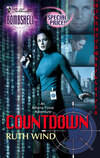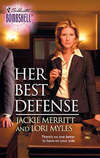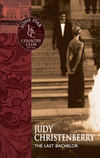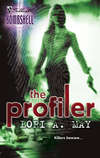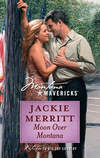Kitabı oku: «Countdown», sayfa 3
“Because they can? Because it causes trouble? Terrorists don’t need a clearly defined reason to do things—they just want to create fear and confusion.”
“I see your point.” Again that background noise of quick tapping.
Kim said, “What is that noise?”
“Sorry.” The sound ceased. “I have a bad habit of tapping a pen.”
“No big deal.”
“Look, Valenti, you’ve done me favors, and I’ll see what I can do, all right? But maybe you oughta look at the intelligence in another way, too. Maybe it’s not pointing where you think it is—and that would be tragic, too.”
“You’re right. I’ll go over it again. Let me know what you find out.”
“Will do.” He dropped his voice, and his next words were even richer, darker, like chocolate. Laced with espresso. “We still on for next week in your neighborhood?”
“I’ve gotta tell you, Lex, your voice didn’t hurt the cause any.”
“Yeah? You like it?”
Kim smiled. “Call me if you find anything, Luthor.”
“I’ll be talking to you.”
Scott, sitting at his desk, raised his head when she hung up. “You’ve got that gleam in your eye, Valenti.”
“Don’t be ridiculous,” she said, and stood up. “I’m going to take some personal time. I’ll be back later.”
Chapter 4
S he drove home and without taking off her coat, she fired off an e-mail.
To: Delphi@orcl.org
From: Ariadne@orcl.org
Subject: need help
Give me everything you have on Chicago, the campaigns, anything the Chicago set might have done previously. Not making a lot of progress through usual channels. Advise.
Ariadne
Still wearing her coat, she went to the kitchen, opened a vacuum-packed envelope of tuna and ate it leaning on the counter. From the other room came a soft beep and she walked back.
To: Ariadne@orcl.org
From: Delphi@orcl.org
Subject: re:
-Intelligence from CIA shows infiltration at Chicago UBC television station, CIA might have a man in there.
-Three moving vans were stolen last week in southern California. Home-move type, not professional.
-Quote keeps showing up in unrelated material: Good women are obedient. They guard their unseen parts because Allah has guarded them. Surah 4:34
-Reference to Cristopho in materials CIA intercepted. Columbus? Clue to city or holiday? Check. As always, act independently if necessary. Oracle will back you.
Delphi
Kim narrowed her eyes, punched in a thanks. A man at the Chicago UBC affiliate—at least it was a place to start. Her gut was screaming that Chicago was the place, the time not far distant. Not even as far away as Columbus Day, which was Monday, either. The flurry of e-mails was so intense, the deal had to be going down soon.
And if she couldn’t figure it out, somebody would die. Kim intended to do whatever was necessary to prevent that.
She picked up the phone, punched in some numbers. “Shepherd,” she said when Scott answered, “I’m going to Chicago. Let the boss know for me.”
“Whatcha got?”
“A hunch more than anything else. Not a lot more. Can you cover for me for a day or two?”
“I don’t like it when you do the maverick thing, Valenti. Too nerve-racking.”
“I know. But it’s the way I was trained.”
“This doesn’t have anything to do with an FBI agent named Tanner, does it?”
“No. Why?”
“He left a message.”
“Yeah?”
“Yeah.”
Kim made a noise of annoyance. “Are you gonna tell me what it is?”
“‘Checked it all. Everything is A-okay. Don’t worry.’”
A ripple of something she didn’t stop to identify raced through her—a twitchy mix of longing and regret. He hadn’t taken her seriously, either, and it was far more disappointing coming from him. Her sharp response was a warning.
She’d do well to leave the man alone. Completely.
“Nope,” she said. “Tanner is as clueless as all the rest of them. You’re the only one who ever believes in me. This trip is to check out a gut-level idea.”
“Your mysterious source.” Scott tsked. It wasn’t the first time she’d received information through Oracle. She simply let him think whatever he thought about it. “All right, Valenti, I’ll cover for you, but you keep that pretty ass out of trouble, will ya?”
“I’ll do my best. If you need me, I’ll have my cell phone with me.”
“Stay in touch.”
When she hung up with him, she looked up the number of the Chicago UBC station and called to speak with the personnel manager, a man named John. She identified herself as a member of the NSA, and said she was tracking some information regarding a case—would she be able to check the files tonight? He agreed warmly, said he’d be in that evening to train a new cameraman, and she could stop in at her convenience.
She changed into jeans and warm boots, but left her hair in a knot at the base of her neck. Into a small duffel, she threw a change of clothes and her makeup bag. From a rack on the back of her closet door, she chose a small shoulder purse, and tucked in her wallet, cell phone, and at the last minute, her NSA security badge. Within an hour, she was at the airport.
The ticket had been purchased at the last minute, so Kim wasn’t surprised when she was pulled out of the security lines for additional screening—and not just the usual, extra hand-wanding, but a full, focused search of her belongings and the body search by an appropriate female guard. The girl was skinny as a praying mantis, her elbows like knots. Her blond hair was tightly pulled back from her extremely young—and serious—face.
Kim joked, “All clear? For once, I remembered to not wear an underwire bra.”
“Wait right here.” The girl picked up a phone, punched in a number.
Scowling Kim said, “What is—”
“Better if you just follow directions, ma’am.” She turned away and said something into the phone, looking at the NSA badge with Kim’s picture.
Kim felt passersby giving her the curious eye. Odd how it made her feel guilty.
“I’m afraid there’s an additional problem, ma’am,” the girl said. “You’ll have to follow me, please.”
“Sure, but—”
“High alert this week and you have a lot of red flags.”
“Last-minute ticket, I know. It’s just that I work for—”
The woman flashed Kim’s confiscated badge. “National Security Agency. I know.”
Kim scowled at the rudeness and rolled her eyes. She looked younger than she was, she knew that. No point in antagonizing the woman further—it would just lead to more delays. “Will this take long? I’m worried about missing my flight.”
“There’s another one at 3 p.m. if you miss this one,” the woman said without looking at Kim.
“Great.” It wasn’t. It would mean getting to Chicago after dark, maybe not to the television station until the evening news. With an effort, she breathed in. Out. No point in getting upset. It wouldn’t hurry anything.
At an office with a window overlooking the concourse, the woman stopped and shoved open the door. “Here we are. Have a seat, ma’am.”
A tall, bearded black man in a Transportation Security Administration uniform waved Kim into the chair. The woman escort handed over Kim’s bags and badge, then exited.
“I’m sorry about the delay,” the man said. “I need to verify your identity.”
“No big deal.”
As the man dialed the telephone, Kim fidgeted, irritably wiggling her foot until she realized it would make her appear to be nervous. Which she was, though not because she wanted to blow up the airport.
The airport. Why had the FBI in Chicago paid so much attention to the airport? Airports were so heavily guarded since 9/11 that there had to be an easier way for a terrorist to accomplish goals of instilling fear. Why bother? Narrowing her eyes in thought, Kim decided the FBI must have had some intelligence they weren’t sharing.
The man hung up the phone. “I’m afraid we have to hold you for twenty minutes, just until they can fax a photo to your boss.”
“I’ll miss my flight.”
“Sorry, ma’am. When it goes to orange, it gets a lot tighter around here.”
Tamping down her annoyance, Kim folded her hands around her knees. “I appreciate that, but I’m bewildered. Why the trouble today? I’ve flown a dozen times under similar circumstances recently.”
“I’m not at liberty to say.”
“If I get through the security clearance will you tell me?”
He nodded. “That’d be all right, I guess.”
The fax went through with a series of beeps and bleeps. Kim stared through the window over the concourse at the streams of humanity bustling through the hallways. She puzzled over the challenge of clearing millions and millions of passengers every day. Millions.
And it wasn’t as if criminals hadn’t proven they were willing to do anything to reach their objectives. Q’rajn wanted to punish the U.S. for its involvement in Berzhaan. Other rebels wanted other things, and anyone with an ax to grind, a pound or two of plastic explosives and a death wish could do it. For terrorists of the ilk they were all trying to fight, life was as thin and cheap as paper.
Watching the crowds, she tried to imagine she was the one trying to decide who was a terrorist and who was an ordinary citizen. A tall man in a business suit looked like a physician, hurrying toward an important surgery. The turban on his head marked him as a Sikh, something Kim knew from her studies at Athena Academy. Exotic, but likely not dangerous.
But how would the ill-educated girl who’d carted Kim up here know that?
Odd, but sitting in the plastic chair in the office of the head of security made Kim feel guilty.
“It’s a pretty rough job, the security of airports,” she offered.
The man, his hands steepled in front of his mouth, raised weary brows. “That’s understating the situation, I’d say.”
“It’s impossible, really, isn’t it?”
He shook his head. “Never give up.” The fax machine spit out a piece of paper and the man leaned forward to swipe it off the tray. “Looks like you’re good to go, Ms. Valenti. Sorry for the delay.”
Kim shrugged and took the things he held out to her. “So, I assume it was the late booking that caused so much trouble, but what else? I’ll try to avoid it next time.”
He scratched his nose. “Not sure you’ll be able to do anything about it. The girl—er—thought you looked Arabic.”
“Ah.” She met his eyes.
He held her gaze for a second, then lifted a phone. “I’ll call your gate to have them hold your flight.”
Kim hitched the bag over her shoulder. “Thanks.”
On the concourse, she headed for her gate, glancing up over her shoulder at the two-way window. Something niggled—there was something they weren’t telling her. What could it be? What information had gone out that she’d not yet seen?
As she walked, she took the cell out of her bag and punched in the numbers to Scott’s desk. The phone rang at the other end as she reached the deserted gate.
An impatient flight attendant stood irritably at the door to the flight. Kim handed the woman her boarding pass. “Sorry. Got stuck at security.”
“Not your fault.” The woman gave her back the small piece of pass. “Have a good flight.”
Scott’s voice mail picked up. “Shepherd,” Kim said, hurrying down the ramp, “run the files again and see if there are any references to women, then get back to me. I’m getting on the plane right now, so I have to turn off my phone, but leave a message.”
Chapter 5
B y the time she dropped her bag on the bed in her Chicago hotel room, Kim was famished, grumpy and grimy. After a quick shower, she tucked her badge into her purse, bought a sandwich from the small deli in the hotel lobby and sat down to eat it with a cup of coffee by the windows.
She bit into the sandwich and took a single moment to appreciate it. A fantastic Reuben, layered with film-thin pieces of corned beef, fresh, crispy sauerkraut, melted Swiss cheese and just a smear of thousand-island dressing. Some things in life were worth appreciating. A great sandwich after a long day was one of them. The coffee, she discovered, was excellent, too.
Right after Jason was killed, Kim had gone through a period of dullness, where the world had felt as if it were a long way away from her. None of it had sharp corners or bright colors or any real detail, as if she were viewing it all through watery glasses. Everything was muted, turned down—sounds, sights, tastes, feelings.
One night, she had a dream that her brother slapped her. “Wake up!” he cried in the dream. “It’s all right there, everything I can’t have!”
And she spent the next days in agony, finally beginning to feel by first acknowledging that her brother was never coming home. She owed it to him to be alert and aware of life—eating a sandwich, dancing, making love. Whatever.
As she ate, watching snow drift slowly, lightly from the dark sky, she turned her cell phone back on and checked for messages. There were two.
One was from Lex Tanner: “Valenti, I got this number from your partner.” Kim bent her head, hiding a smile over the pleasure of hearing his voice again. That honeyed, rich drawl! “Sorry about earlier. Don’t hold it against me, huh?”
She moved to the next message, which was from Scott. “Hey, I got the information you wanted. There’s only one reference to women, a quote from the Koran,” he said. “‘Good women are obedient. They guard their unseen parts because Allah has guarded them. Surah 4:34.’”
Kim frowned. The same quote Delphi had sent her. Women, unseen parts… She narrowed her eyes, waiting for something to click. How would they use women? Considering the general attitude of Q’rajn, a conservative Muslim group, Kim didn’t see them using women as warriors.
Still, it was another piece of the puzzle. Too bad she didn’t know where it fit.
She finished her sandwich and tossed the cup and napkin into a trash bin, then headed out. She had other hunches to check out tonight. Maybe something at the television station would help the quotation make sense.
It was a cold, blustery evening. An icy wind blew off the lake, carrying a threat of snow. Kim huddled into her coat and wished for a warmer hat.
Winter. Ugh. With a swift sense of longing, she remembered the Arizona desert, clear and bright through the winter. It could be quite cold at times, but the air was never heavy, and what snow fell would be gone the minute the sun came out.
Not like winter in the East and Midwest, where the wind was bitter and the snow could lie on the ground for months, gaining layer after layer after layer of grime and disgustingness. She should have brought a warmer coat.
Tucking her chin closer, she hailed a cab to take her to the UBC station. The cabbie, a large-eyed man with an Iranian accent, said, “Terrible night out, isn’t it?”
Kim shivered. “I hate this weather.”
“Do you mind if I listen to the news on the radio?” he asked, his dark hand on the radio dials.
“Not at all.” She leaned back and let the headlines wash over her. As they crossed a bridge over the river, she admired the shimmer of light on the water, the tall buildings stretching up toward heavy clouds.
“Several protestors refused to disperse and were arrested this afternoon in front of President Whitlow’s campaign headquarters,” said a sober male voice. “Approximately one hundred activists gathered to voice disapproval of rumored U.S. involvement in Berzhaan politics.”
Kim rubbed a spot between her eyes. Would the terrorists target a demonstration? It was certainly a place to kill and wound a lot of people. Would there be others this week? She made a mental note to check which special interest groups were most vocal in the Windy City, and see if they’d been granted permission to demonstrate.
“Presidential candidate Gabe Monihan is expected to raise large crowds in Chicago tomorrow. The popular candidate will speak at 10 a.m. tomorrow at Loyola University. Traffic along the route is expected to be extremely heavy.”
The taxi driver snorted. “That means it will not move,” he said.
Kim chuckled “I’m sure.”
The television station appeared to be very quiet, which Kim supposed was not surprising, considering it was nearly 9 p.m. It seemed odd to find it so empty after the high security at the airport. If Kim was a terrorist, she’d pick news venues every time, but she couldn’t think of a single staging in a news station ever, in any country.
Hmm.
She paid the driver, hitched her duffel over her shoulder and went inside. A single woman sat in a bulletproof cubicle that seemed absurdly well lit in the dim quiet of the waiting room just beyond. She pressed a button and asked Kim, “May I help you?”
She flashed her NSA badge. “I called a couple of hours ago. I’m meeting John from Personnel.”
“Right. Just one minute.” The girl picked up the phone and spoke into it. She put it down and pushed a buzzer. “Go through the double doors at the end of the hallway and John will meet you.”
Kim found herself in a long hallway, hushed and empty. Discreet spots cast a thick amber light that left pyramids of shadow along the path.
She paused, struck by a sense of extreme uneasiness. The hair along the back of her arms rose the slightest bit. It was like the low growl of a dog who heard something before the humans in his realm—she stopped and listened carefully.
What was causing her discomfort? A sound just out of range? A scent that shouldn’t be there? Something more primeval? Her training had taught her to respect such ripples of warning.
She listened intently. The low rush of air blowing through furnace vents, a slight, faraway humming that sounded more or less electronic. Nothing else. It was a television station, after all. The walls had to be soundproofed.
The only scents were the slightly chemical odors of carpeting and glue and other industrial materials, the faint dustiness of forced-air heat, her own hair releasing a ghost of damp lemony conditioner.
Nothing.
Something.
She turned in a circle. Maybe it was just the shape and depth of the shadows, the extreme stillness.
The bang of swinging doors sent a jolt through her, and she forced herself not to show it.
“Ms. Valenti!” said a man coming through the doors at the far end of the hallway. He looked oddly out of place in his Dockers and pale orange button-down shirt, as if someone had cut him out of an ad in a Seattle newspaper and pasted him into the wrong background. The haircut, the glasses, even his body language were too casual for this area. “I’m John Hallam,” he said, extending his hand. “I’m afraid I don’t have much time to talk to you—we thought you’d be here much earlier.”
“My apologies,” Kim replied. “But I—”
“Right this way.”
His handshake was cool and strong, in contrast to his youth, but she picked up a distinct sense of nervousness. “Thanks,” she said. “Do you mind if I ask you a few questions?”
“Let’s do that in the office, shall we?” He gestured for her to proceed ahead of him through the doors, and Kim stepped into a dark, open space crisscrossed with wires and cords and hulking shadows of equipment she didn’t recognize. The ceiling stretched high into an area of steel girders, and Kim saw light shining from over a wall. Faintly, she heard voices.
At a second door, John paused. “They’re about to go live for the news, but we have a few minutes. I thought you might want to meet some of the anchors.” He smiled. “People generally do.”
What could she say? Not me? So she smiled and shook hands with a trio of toothy, small, ultraclean people, noticing the facade of desk and backdrop against the cavernous, overarching darkness stretching above. Unease made her look around again.
Nothing. A cameraman fiddled with knobs on his machine. A bank of monitors showed six different screen shots. One was animated—she assumed it was the actual broadcast stream.
“Have any of you had threats or any reason to suspect trouble with anyone on the set?” she asked suddenly.
“No!” The young woman’s eyes flew open. “John, is there a problem? Should we have guards again?”
“Again?” Kim echoed.
“Last summer—” the blonde began.
“One minute!” cried a stagehand or whatever he was called, a man with a thick beard and liquid eyes, rushing through with jeans and a loosely flapping shirt. He looked more like Chicago, Kim thought distractedly. Mixed race. Ethnic, anyway.
“John!” the blonde prompted, even as she straightened the front of her red suit and adjusted her mike.
“We’ll talk about it later, Amber.” John grabbed Kim’s arm and hustled her toward another set of doors on the other side of the set. His hand settled at the small of her back, a firm pressure propelling her out of the room.
The hackles rose on her neck as they stepped through the doors. Kim instinctively took stock of her surroundings, noting exits—few—ceilings—high—windows—zero. It was like a fortress. It was curiously empty, as well. She would have imagined a television station to be a bustling, busy place, full of minions running around.
“Is it always so quiet around here?”
“Usually,” John said. “The nuts and bolts of television are pretty straightforward—you need a good crew, but not a large one particularly.” He opened a door halfway down a quiet corridor and waved her in ahead of him. “This is where we keep the personnel files.”
He flicked on the overhead light, and cool green neon flooded the room. There were no windows, only a low ceiling of acoustic tile. The walls were white, with a pair of motivational posters. The carpet was industrial brown and orange, endlessly forgiving and impossibly boring. A bank of television screens ran down one end, and John turned them on. They showed a series of different shots—a commercial frozen in place, a public-service announcement screen, and a logo for UBC. The last showed a live feed of the anchors they’d just left.
“If you want to spread out on the tables, you’re welcome to do it.” John unlocked the file cabinet closest to the door and swung open a drawer. “I’ve got to get back out there, but you should be able to find whatever you need right here. New-hires to the front, the rest alphabetized.”
“Thanks.”
“If you need anything, just dial 0 on that phone, and you’ll get the receptionist. She’ll find me.”
“Got it,” Kim said, and frowned as she looked around. The sense of things being a little off-kilter still hung at the back of her neck. She disliked the setup of the room at the end of a corridor, the lack of exits, the grim lighting. Maybe it was just the fact that there were no windows.
John still hung by the door, peering intently at one of the screens. Kim saw there were dots of perspiration on his top lip. “Big night, huh?” she ventured.
“What? Oh. Yeah, we have a new cameraman. I’m worried about it.”
“Go to it, then. I’ll be fine.”
He frowned at the screen, hurried out without answer. Kim looked at the bank of pictures to see what had bothered him, but nothing much seemed to have changed. Still the same three static pictures and the live feed of the news team. The woman was laughing as they made a switch, and suddenly a commercial blared into the room.
Kim winced and raced over to see if she could turn it down. There were several knobs and buttons and she experimented until she found the right one, turned it low, but not off. To avoid a repeat, she found the same buttons below each of the screens and turned each one down.
Still feeling uneasy, she went to the door and stepped into the hallway. There was an exit sign about five hundred feet down the corridor. At least she knew how to get out if she had to. Moving her head on a neck still prickling and somewhat stiff, she listened in the hallway, but there was no sound.
Going back into the office, she tugged open the drawer and started looking through the files, one at a time. Each one contained background information, a résumé if one had been submitted, photos obviously taken in the same spot with the same camera for some kind of station ID and whatever notes anyone had made on them. There were seven new-hires dating back one year. None appeared to be out of the ordinary. Two cameramen, including the one John was fretting over tonight, a nervous-looking redhead with freckles head to toe and big golden eyes. A fifty-five-year-old woman hired to do secretarial work, who looked far younger than her age. Three support staff for the dining room.
John himself.
“Interesting,” she said aloud, and flipped through his file. He’d been hired five months ago to take the place of the former station manager. An impeccable pedigree: a navy brat who had attended UCLA, done his time in the trenches as a reporter, and then drifted to the managerial side of the line. He’d come to Chicago via Florida.
A soft, almost subvocal whispering had been nagging her for several moments before she realized it. Kim lifted her head, frowning, and looked at the television screens. The news was back on, and it must be a sober story indeed, because the cheerleader was looking pretty grim. The camera angle was odd, too, and Kim shook her head. The cameraman was going to be in trouble.
Something wasn’t quite right. She frowned and looked at the screens again. The whispering continued, but Kim could see nothing to account for it. The blonde was reading the news. The commercials stayed frozen.
Then the sibilant whispering sank in. She jerked up her head. A single word of the whisper penetrated suddenly—the Arabic word for woman. Her head jerked up and she stared at the television screens, listening intently. The lyrical rise and fall of the language was unmistakable, even in whispers, but she couldn’t quite catch any other distinct words.
She peered at the screens. Where was it coming from? Moving to the bank of screens on the wall, she turned up the volume beneath each one. Silence greeted her on the first three. On the fourth, she heard a nonnative speaker brutalizing Arabic with harsh accents and dropped rolls. Maybe American, maybe German. Kim frowned and put her head down, listening closely. American. A man.
Two men spoke in quiet, hurried Arabic.
“We only have two choices,” the first—nonnative speaker—said. “Monihan will be at the airport and we can take care of that then. We only have to secure the station until Mustafa accomplishes his mission at the airport.”
“Her mission,” snickered a second voice, this one a native Arabic speaker.
Her mission. Kim glanced at her watch. Two hours till the plane arrived at the Chicago airport. What was happening then? What did they have planned? It seemed an odd time for a bombing if a terrorist wanted to take out as many people as possible. She strained to hear what else the second speaker said, but the voice was softer, more liquid, and Kim couldn’t hear it.
She raised her head. Where was the mike that was picking up the conversation? She glanced at the monitor, trying to tell if there were labels of any kind to guide her if she went back to the other room. The main screen said Camera One, predictably. Not much help. She’d have to take her chances.
From the set came a scream, and Kim jerked her attention back to the first screen. As she watched in horror, the set flooded with men who carried guns, running in what almost looked like formation. Quickly, she tried to count them: maybe five? Six?
From the midst of them came a dramatically tall and elegant man, obviously the head honcho. Kim recognized him immediately: Fathi bin Amin Mansour, the prodigiously intelligent Berzhaanian with degrees from Oxford. The man whose brothers and mother had been killed by Keminis four years ago. The man who was connected to several bombings.
The man she had been worried about leading a terrorist cell in Chicago.
He headed imperiously for the news desk, where the anchors cowered, stunned. One of the foot soldiers yanked the blond woman out of her chair on the set and shoved her roughly aside. She screamed, and her hands flew up protectively around her face, but another soldier simply shoved her to one side, out of sight of the camera.
“Damn,” Kim whispered.
Mansour settled himself in the center chair and gestured with one long-fingered hand at the camera, which came closer and focused in on a face that would have been handsome without the light of fanaticism burning in his eyes.
In crisp, British-accented English, he said, “We have overtaken this television station on behalf of the people of Berzhaan, to protest the American involvement in our country’s affairs. We have footage to show that the CIA has been involved in arms sales to the Kemini rebels, in order to keep our country in a state of unrest.” He cued someone in the room, and a fuzzy video began to play.
Kim ceased listening and ran to the doorway and closed the door silently, turning off the light. Little chance they didn’t know she was there, since it had only been ten minutes since she’d sashayed across the set. They’d come after her, but maybe she could figure something out in a minute or two. She tucked her hair under her collar.
On-screen, Mansour continued to talk, listing demands. A camera shot spun around and showed a line of station employees sitting in terror at one side of the set. A dark man with Arabic features stood over them, his face impassive, an assault weapon held loosely in his hands.
Behind them yawned the darkness of the cavernous studio. Kim glimpsed a man with a curiously expressionless face—this must the nonnative Arabic speaker—headed for a set of doors. With a jolt, she realized it was the doors toward the hallway that led to this office.
He was coming for her. And he didn’t look as if he’d mind breaking a neck or a head or anything else.
Kim poked her head into the hallway, trying to gauge whether she had time to make it to the exit. But even as she stuck her head out, she heard the doors to the studio swoosh open. She dived back into the office, where at least the darkness could lend some surprise.
Ücretsiz ön izlemeyi tamamladınız.
